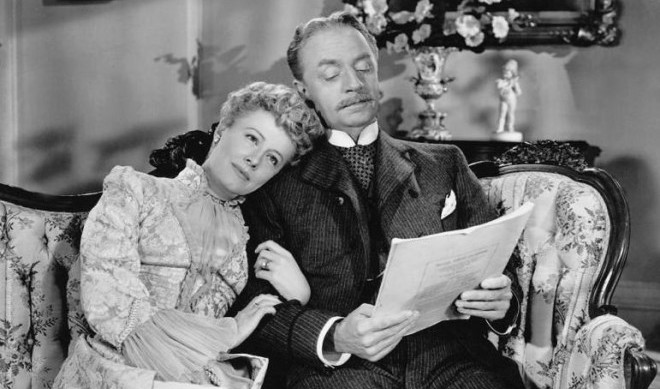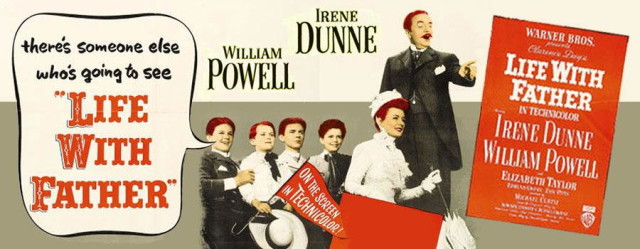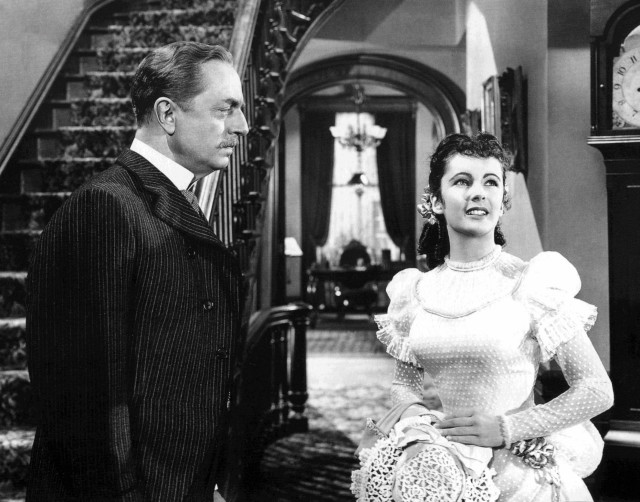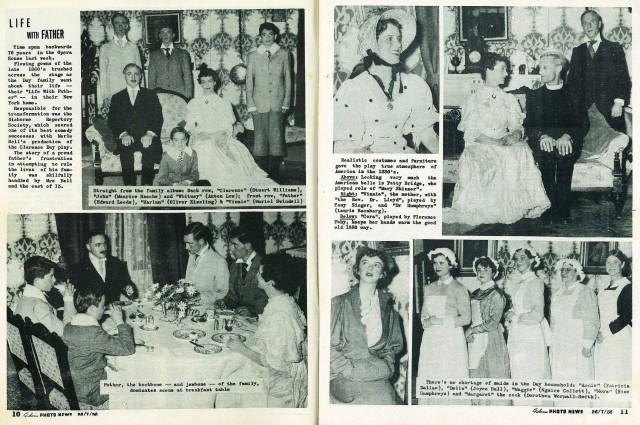“I can’t take a cab to heaven!” exclaims Father when he finds out that his wife, Vinnie has called a cab to take the entire family to church where Father will finally be baptized. It’s a look into upper class New York in 1890 — Clarence Day wrote stories about his father, “Clare” which were published in the New Yorker magazine in 1935, and later compiled into a book called, Life with Father. It became the longest running nonmuscial play on Broadway from 1939 to 1947 and was made into a film with William Powell and Irene Dunn (two of my favorites.)
I love autobiographical sketches. They give you a glimpse into life as well as the history of the time. [That’s why it’s so important to write your memories.] Today you won’t hear much in the media about baptism, yet it was obviously a topic of concern in the 1890s. Watching this film reminds me how far women’s rights have progressed. But it also reminds me of how far some things have deteriorated — such as the family and concern for saving ordinances.
When I was writing about why we give ordinances, this movie, Life with Father, came to mind. I’ve always loved the scene when the father, Clare, boldly reveals, “I never was baptized,” and in fact, his parents thought he should be older and have a choice in the matter — but somehow, after Father thought about it at age 12, he just never did get baptized. Vinnie, his wife is shocked, fearing that the family will not be together in heaven, and she insists that her husband Clare get baptized.
In the following scene, young Elizabeth Taylor questions William Powell about his baptism:
Later in the film, Clare finds out that his wife has planned his baptism and called a cab to take them to church for the much anticipated event:





